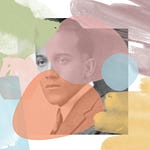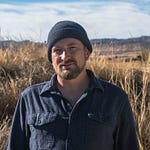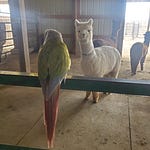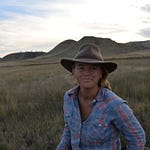In his introduction to The Outline of History, H. G. Wells wonders at the personal workings of political motivation: “Indeed, what are a man’s political activities but the expression in action of his ideas of the past?”
Reassured by Wells’s open humility—the sense in which he determines to work within his means, as a writer—I returned to a related question that has gone to seed in my brain:
What separates action from ideation?
Is thought not verbal, not essentially active? If thought occurs within our bodies but is communicable by way of language... what does action look like? Does it look like the body, or does it look like the word? What makes the body of the word different from the body of the person? How is it that we come to see thought as bodiless when it is so apparently embodied? How is it that we come to see our bodies as permanent when they are so clearly ephemeral? (Such inquiries place me in the debt of poets Bhanu Kapil, Akilah Oliver, Audre Lorde, and many others.)
Something about Wells—and, I admit, recent readings in Proust and Byatt —makes me feel as though time itself is act, similar to the poet’s sense of language speaking the person rather than the inverse. What I mean to say, however porously, is that time-as-action is endlessly contingent: time is withness. Which brings me to the mind of John Flynn and something he said during our conversation:
I need to be challenged; I need to be perpetually and forever on the steep part of the learning curve. If I start to plateau, I get curious about where else to go with something—how can I be forced into another position of uncertainty? I desire the obsession part of being outside of my comfort zone—inside my fears, outside my comfort.
On the evening of the recorded conversation below, it was almost too cold to sit outside, so we sat outside. There is a genius and a generosity to such logic, or anti-logic, which you will hear in the sound of John’s voice and the rhythm of his sentences. For John, interaction is a sort of adventure. But even when his knowledge of the territory is second to none, he never leaves his partner(s) behind.
“If texture is the depth of a gesture, you need Time to do the deepening.”
Thinkers mentioned:
Max Planck
Niels Bohr
Albert Einstein
Augustine of Hippo
Plato












Share this post